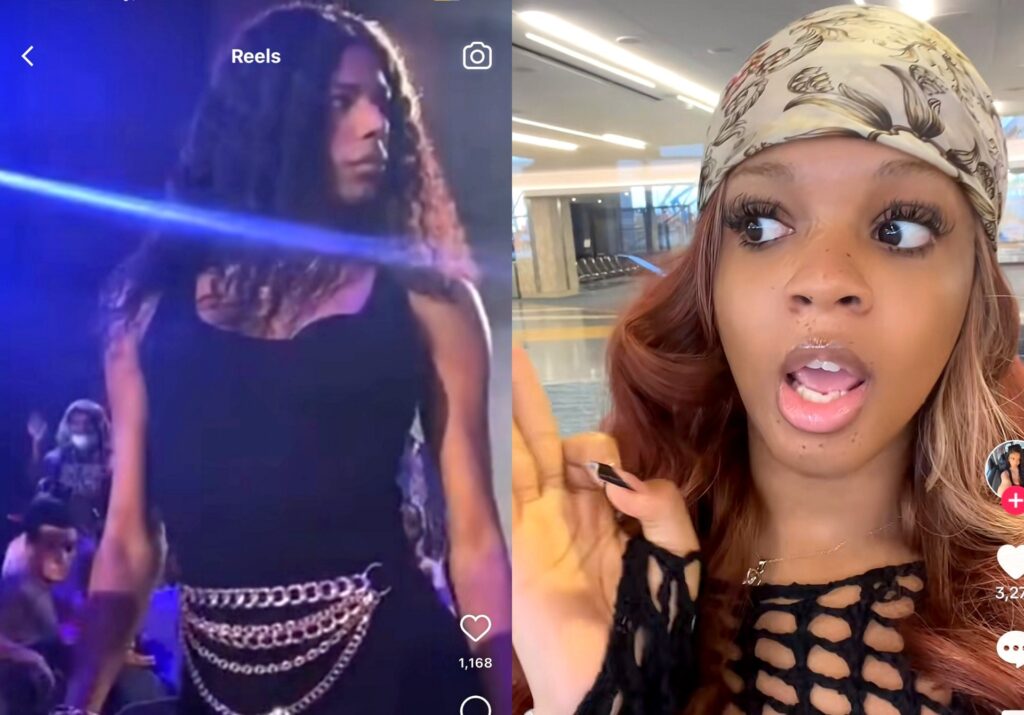
From Left to Right, Nekia Zulu and Cienna Rosalina, from Yonkers.
By Dennis Richmond Jr.
In today’s digital age, platforms like TikTok, Instagram, and X (formerly Twitter) are revolutionizing how LGBTQ+ voices are heard and amplified. These spaces are not just for selfies and memes; they are vital tools for education, community building, and activism, transforming the landscape for marginalized groups in unprecedented ways.
TikTok has become a beacon for LGBTQ+ youth, allowing creators to share their journeys with a global audience through engaging short-form videos. Whether it’s coming-out stories, discussions about gender identity, or humorous takes on queer life, users are discovering community and representation like never before. Hashtags like #LGBTQ, #TransJoy, and #NonBinaryVisibility connect millions, fostering a sense of belonging among young people navigating their identities.
Cienna Rosalina, a Yonkers native approaching nearly a quarter million followers on TikTok, highlights this shift: “Social media has significantly broadened the audience that LGBTQ+ activists can reach compared to the past. Activism used to be confined to protests and local events, but now it has a global stage.” Cienna points out that for those in isolated or non-affirming environments, these platforms provide essential connections, offering support and validation that can be life changing.
Instagram plays a crucial role in visual storytelling for advocacy. Activists and organizations use its capabilities to spotlight pressing issues facing the LGBTQ+ community, from anti-trans legislation to mental health awareness. The platform’s Stories and Reels features allow for quick dissemination of information and organization of events, while profile pronouns promote inclusivity.
Twitter, known for its immediacy, serves as a rallying point for LGBTQ+ activism. Users can quickly spotlight breaking news and engage in real-time discussions about crucial issues. Campaigns like #BlackTransLivesMatter gained traction here, highlighting the intersections of race and gender identity. Twitter fosters solidarity, enabling users to support one another and mobilize around urgent causes.
Despite its power, the digital landscape is not without challenges. Many LGBTQ+ creators face harassment and algorithmic bias, and censorship remains a threat. Yet, the potential for social media to amplify marginalized voices is undeniable. As these platforms evolve, so too will the ways in which queer individuals advocate for acceptance, equality, and joy.
Nekia Zulu, another prominent voice in the community, emphasizes the transformative impact of social media. “It’s pivotal in bringing the LGBTQIA+ community out of the shadows of taboo,” she says. “Now, you can find stylists, artists, and advocates who have always been part of this world but were hidden away.” Social media allows these individuals to be recognized for their talents, from fashion to music, and shine a light on injustices faced by the community.
As we navigate the complexities of the digital age, social media remains a lifeline for the LGBTQ+ community, facilitating connection, education, and activism. While the journey has its hurdles, the collective strength and resilience displayed online is a powerful testament to the community’s ongoing fight for equality. For many, social media isn’t just a platform; it’s a home.
Dennis Richmond, Jr., an educator, historian, and writer, illuminates the experiences of Black, Latinx, and LGBTQ+ communities in Yonkers and NYC through his journalism. Stay connected with him by following @NewYorkStakz on social media.





